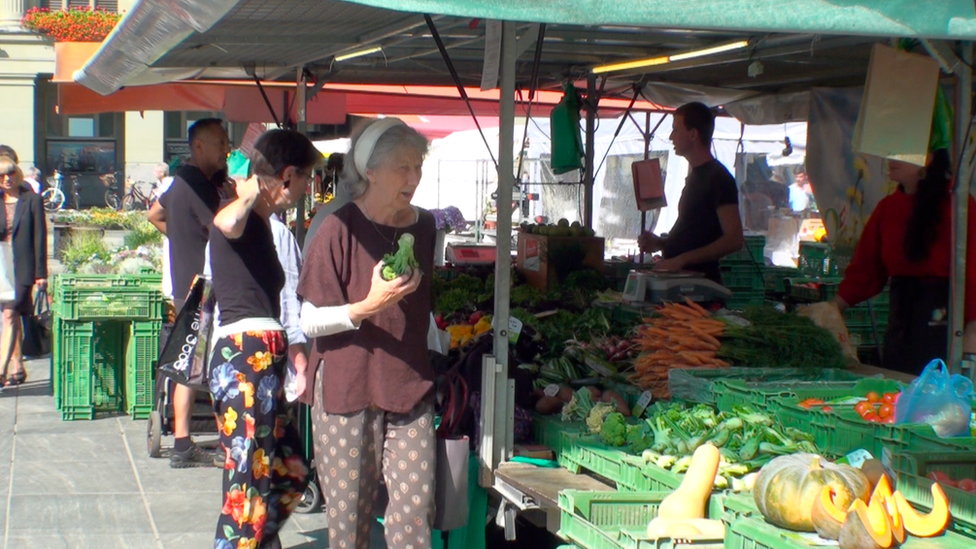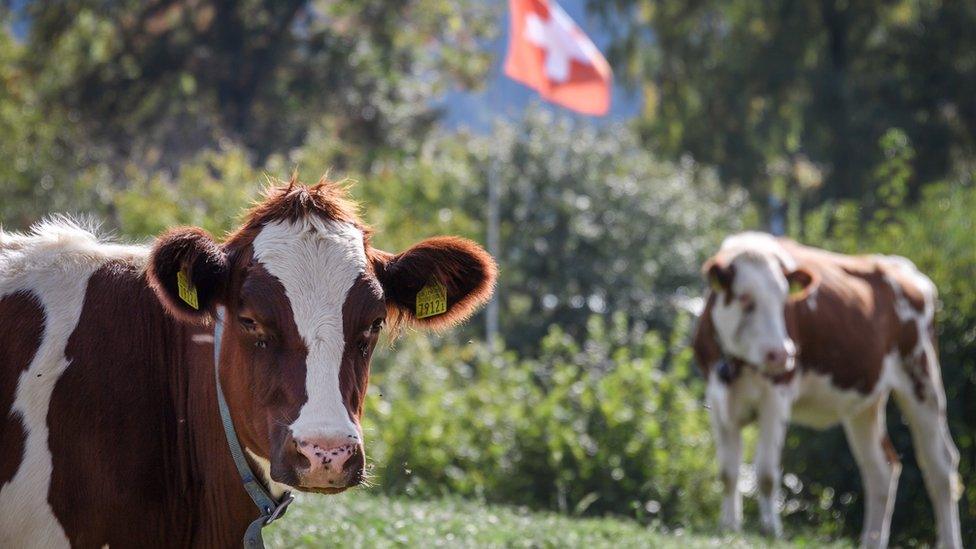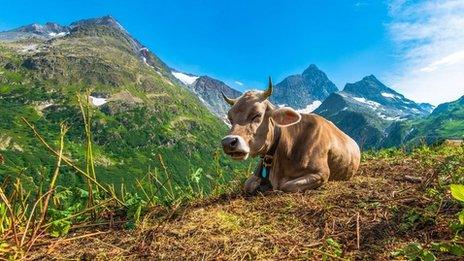Swiss voters reject 'fair food' plans
- Published

Local, high-quality food is already popular - but the Swiss do not seem to want to pay more for ethical farming
Voters in Switzerland have overwhelmingly rejected two proposals on ethical and sustainable food.
Final results of the two nationwide polls show that more than 60% of people voted against them.
The proposals were aimed at boosting local farming and promoting more sustainable agriculture.
But opponents, including business leaders and the government - which advised people to vote no - had warned of higher food prices and less choice.
The size of the defeat will be a big disappointment to farmers' groups and ethical food campaigners, says the BBC's Imogen Foulkes in Geneva.
What exactly was in the proposals?
The first proposal, called "fair food", wanted more government support for sustainable, animal-friendly products - and more detailed labelling so consumers knew what they were getting.
It also called for a crackdown on food waste, and for imports to meet Swiss standards on workers' conditions, environmental safety and animal welfare.
This would have meant Swiss inspectors checking foreign food producers for compliance.
The second, called "food sovereignty" went even further, calling for much greater state support for local family farms, for higher tariffs on food imports, and for foreign produce that did not meet Swiss standards to be banned.
Opinion polls before the vote had shown strong backing for more investment in Switzerland's small family farms, thousands of which have had to close in recent years.
Proposals requiring foreign food producers to adopt Swiss standards on sustainable farming and animal welfare had also appeared popular.
But in the closing days of the campaign, warnings from the government that the measures were unenforceable, and from food retailers saying prices would rise, clearly swayed voters, our correspondent says.
Economy Minister Johann Schneider-Ammann had called the proposals "dangerous" and said they could trigger tariff increases and other reprisals from trading partners.
Food issues are not off the table yet, however, as votes on pesticides and intensive livestock farming have already been planned.
- Published23 September 2018

- Published8 December 2017

- Published19 July 2017

- Published17 May 2017

- Published12 April 2018

- Published16 May 2018

- Published24 January 2018

- Published18 August 2014
